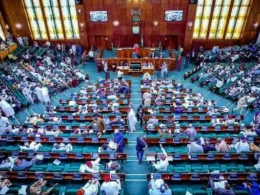CBN Cracks Down on Insider Lending, Threatens Regulatory Sanctions
In a bid to strengthen corporate governance and curb excessive exposure to influential insiders, the Central Bank of Nigeria (CBN) has issued a stern directive mandating commercial banks to comply with stricter insider lending limits. The move, aimed at preventing governance lapses and promoting a more stable financial sector, has set a 180-day deadline for banks to regularize all insider-related credit facilities that exceed the statutory limits.
The CBN’s latest directive is a significant development in Nigeria’s financial sector, where insider lending has long been a source of corporate governance risk. Under the Banking and Other Financial Institutions Act (BOFIA) 2020, banks are required to cap lending to insiders at a percentage of their total loan book. However, in recent years, some banks have received CBN approvals for insider-related facilities without clear timelines for compliance, leaving room for regulatory arbitrage.
According to Section 19 of BOFIA 2020, banks must now adhere to the insider lending limits without exception. In addition to compliance, the CBN has also ordered banks to submit periodic reports detailing the status of their insider lending portfolios and actions taken to conform with the new requirements.
The impact of the directive is expected to be felt across Nigeria’s banking sector, with both large and small banks required to adjust their lending practices. While top-tier lenders are likely to face less pressure, smaller and mid-sized banks may struggle to meet the deadline without significant balance sheet restructuring.
“There’s no doubt that some banks will be forced to unwind large insider positions or seek creative refinancing solutions to meet the deadline,” said a senior banking executive, who spoke on condition of anonymity. “The days of unchecked insider lending are clearly over.”
The CBN’s directive aligns with broader financial reforms aimed at curbing systemic risks in the wake of previous banking crises. The 2009 banking sector meltdown, triggered in part by reckless insider lending and lax oversight, remains a cautionary tale for regulators.
The timing of the directive is significant, coming as Nigeria’s banking sector is undergoing a major transformation. A recapitalization drive is expected to reshape the industry, with the regulator keen to ensure that banks operate with stronger governance structures ahead of anticipated industry consolidation.
“Limiting insider-related credit exposure is a fundamental step towards entrenching discipline and accountability in the banking sector,” said a Lagos-based financial analyst. “The CBN’s latest directive signals a shift toward tighter oversight at a time when the industry is preparing for the next phase of growth.”
One of the biggest implications of the directive is its potential effect on bank directors who hold significant ownership stakes. Under the insider lending rules, these directors may face increased pressure to either bring their loans within regulatory limits or step aside from the board to retain access to credit. This could lead to a wave of boardroom shakeups, particularly in banks where influential shareholders also serve as executive or non-executive directors.
As the 180-day clock now ticks, banks must act swiftly to comply. The coming months could see a flurry of loan restructuring, potential debt sales, or even equity injections to dilute excessive insider exposure. While the directive may pose short-term challenges, it is a necessary step towards fortifying Nigeria’s banking system, ensuring that banks lend based on merit rather than connections.
The CBN’s stance is clear: banks must curb insider lending or face the consequences. As the deadline looms, Nigeria’s financial institutions are now racing to adjust, reinforcing the regulator’s commitment to a more transparent, resilient banking sector.










Join our Channel...